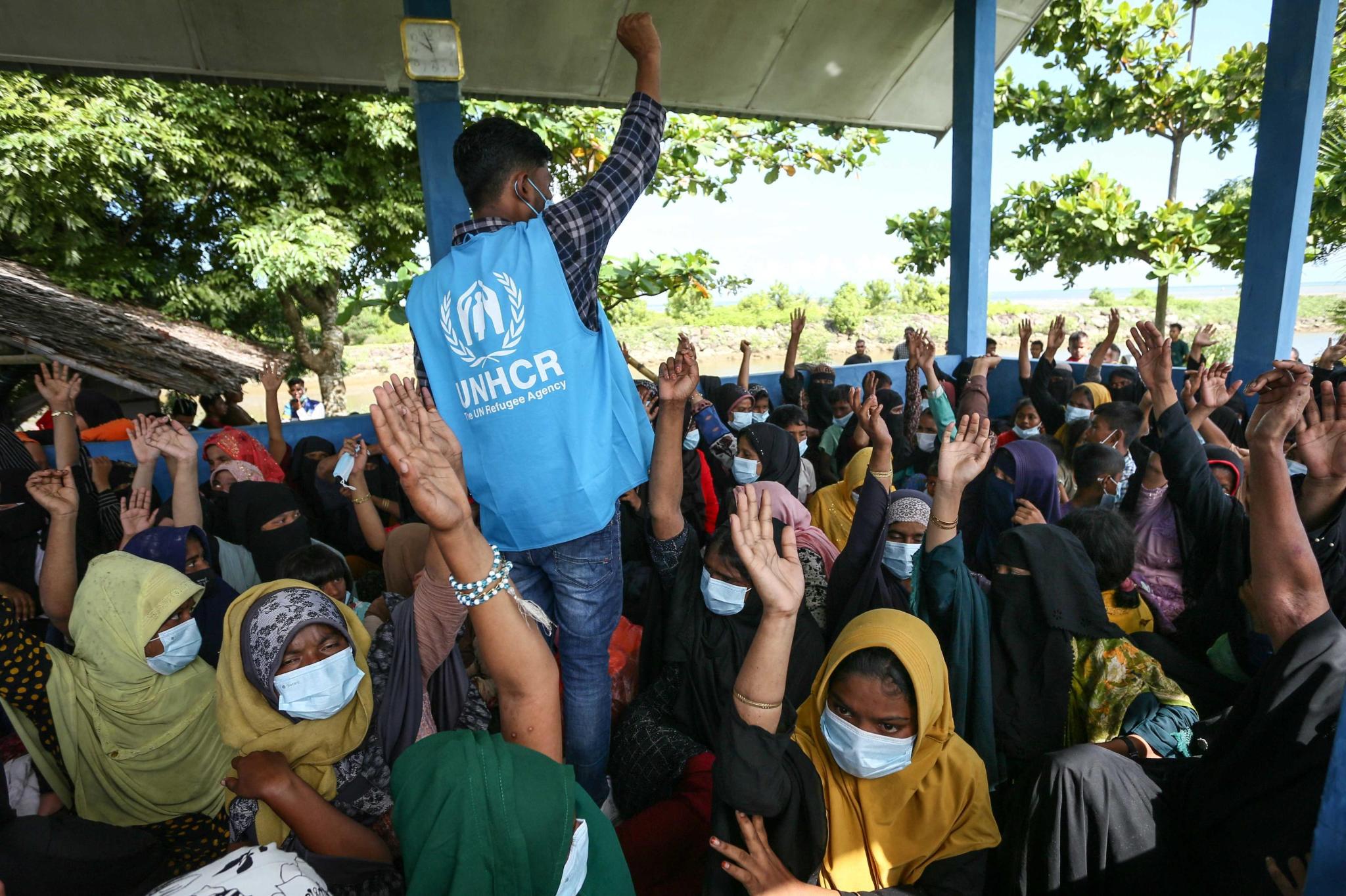Some of the refugees who arrived on Sunday had been pushed back out to sea late last week
Mulyadi / AFP November 20, 2023

Three boats filled with more than 500 Rohingya refugees landed in Indonesia’s westernmost province on Sunday, a UN agency said, in one of the biggest arrivals since Myanmar launched a military crackdown on the minority group in 2017
The mostly Muslim Rohingya are heavily persecuted in Myanmar, and thousands risk their lives each year on long and expensive sea journeys, often in flimsy boats, to try to reach Malaysia or Indonesia.
United Nations refugee agency protection associate Faisal Rahman told AFP one boat had arrived in Aceh Province’s Bireuen District with 256 people aboard, while at least 241 others arrived in Aceh’s Pidie Region, and a smaller boat carrying 36 arrived in East Aceh.
“They were found in several spots,” Rahman said Sunday.
Of the 256 aboard the Bireuen boat, 110 were women and 60 were children, he said.
It was the same boat that locals had pushed back out to sea on Thursday, leaving it stranded off the coast for several days, according to Rahman.
“It’s confirmed… because many people were identified by security officials during the landing,” he said.
The latest arrivals mean more than 800 refugees have landed in Aceh Province this week alone, after 196 arrived on Tuesday and 147 on Wednesday, according to local officials.
An AFP journalist saw the Rohingya boat docked on the beach in Bireuen after the refugees had disembarked.
The refugees were being held at a temporary shelter while awaiting a decision from authorities on their fate and were mostly in good health.
Bireuen regional secretary Ibrahim Ahmad told reporters Sunday the refugees’ cases would be handled by other institutions, without elaborating.
In Pidie, Marfian, a spokesperson for the local fishing community who like many Indonesians goes by one name, confirmed to AFP that a boat of nearly 250 refugees landed overnight.
One of them, 20-year-old Aziz Ullah, said he was living in a camp in Cox’s Bazar, Bangladesh before the group started their journey 16 days ago.
“The [reason] behind our journey was that… the Myanmar government committed violence [against us] again and again,” he told AFP.
“I just want a peaceful life, anywhere. If I will get a peaceful life here, I will stay here.”
‘Very distressing’
But Hasan Basri, another leader of the fishing community in Pidie, told reporters they would reject Rohingya people, claiming refugees had committed crimes in the area in the past.
Those who arrived in the Pidie Region landed at around 3am local time and walked into the nearest village of Kulee from the coast without the knowledge of locals, said Basri.
“They already arrived and it is our obligation as humans to give them food and drinks,” he said.
“Our reason to reject them is because the attitude and character of the refugees are not in line with the Aceh people. Their conduct is very distressing, this is what we really don’t like.”
During this week’s arrivals, some Rohingya aboard one vessel made a desperate dash for shore after residents refused to let them land. They collapsed to the sand and begged for their exhausted fellow passengers to be allowed to disembark.
Chris Lewa, director of Rohingya rights organisation the Arakan Project, said it was the “beginning of the sailing season” for boats from Bangladesh across to Indonesia, which is often used as a transit point to Malaysia where many Rohingya refugees settle.
A 2020 investigation by AFP revealed a multimillion-dollar, constantly evolving people-smuggling operation stretching from a massive refugee camp in Bangladesh to Indonesia and Malaysia, in which members of the stateless Rohingya community play a key role in trafficking their own people.
More than 2,000 Rohingya are believed to have attempted the risky journey to other Southeast Asian countries in 2022, according to the UN refugee agency UNHCR.
Nearly 200 Rohingya died or went missing last year while attempting hazardous sea crossings, the agency has estimated.
